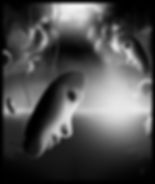Sanctifying With Grace
- jrees41
- Mar 30, 2021
- 3 min read

Fifteen years ago, the NASA space shuttle Challenger exploded seventy-three seconds after take-off, with the loss of the entire crew. Two engineers from the firm of rocket manufacturers had had serious reservations about the craft taking off, believing that the fuel seals would lose their integrity in the prevailing low temperatures. One of the engineers, acting partly on instinct, tried in vain to have the flight stopped, but the management made a decision based on expediency that the flight should go ahead. The rest is, as they say, is history.
A perverse and ironic triumph, you might think, of reason over instinct. In his Essay on the Puppet Theatre, Heinrich von Kleist tells the story of a man who owned a performing bear. He had taught the bear to fence using a rapier, and claimed that this bear could outperform any human contestant. His friend found this hard to believe, and so they put the claim to the test, the friend engaging the bear in a fencing match. As predicted, the bear won.
What particularly struck his friend was that the bear’s eyes never left his own ‘as if he could read my soul in them’. For ourselves, we can work out strategies, plan modes of attack, invent counterfeits and feints using our reason, but the bear cannot do this. He has, however, one weapon against which the cunning of all our powers of reasoning are useless: he uses his instincts, his feelings, what Kleist called his ‘Grazie’. When he looks into your eyes, he sees your thoughts, your plans and, most importantly for the bear, your weaknesses. Kleist felt that, in the organic world, as reflection becomes darker and weaker, so inspiration and grace grow more radiant, more glorious – a triumph of instinct over reason.
Kleist wrote this piece in 1810. The period prior to this was the most important period in the rise of freemasonry, the Age of Enlightenment, the Age of Reason. This was a period in the modem world in which some began to believe in the supremacy of man’s own moral and intellectual qualities over the Divine Spirit – ‘reason reigns supreme’, you might say. Freemasonry was for many the vehicle used to free themselves from the constraints of institutional religion.
It is true that the philosopher Immanuel Kant urged people not to neglect their duty to the church, but that was probably expediency on his part – a bit like Galileo, about 150 years before, crossing his fingers while recanting! And while, in the wording of the masonic ritual, good and fulsome tribute was paid to the Supreme Being, it was the development of Man and his moral and intellectual growth which were emphasized.
It is not enough. Or perhaps, I should say, it depends on us studying and defining the ‘God-in-us’ principle, sometimes known as Grace. After all, we say that reason is useless ‘unless assisted by that Light which is from above’. ‘Homo Sapiens’, the knowing-man, but also the creature who can attain divine knowledge, knowledge above science, above reason. ‘Sapiens’ is good, but it is not good enough. Scientists define humans and chimpanzees as ‘sapient, sentient beings’ – scientist-speak for ‘knowing-feeling’. Two sides to our nature, you might say. Perhaps we should re-name ourselves ‘Homo Sapiens Sentiens’.
In the space shuttle tragedy, all else having failed, the engineer told them that he had ‘a bad gut-feeling’ about the seals’ integrity. If an engineer begins a sentence with ‘I know’, he is listened to with respect, but if he begins with ‘I think’ or ‘I feel’ he never gets to complete the first sentence. ‘You can’t get up and say “Hey, I’ve got a gut-feeling this thing’s going to blow up”’ he said, ‘They’ll take you to the funny farm.’
So, there we have it. We can afford to ignore much in life, but not our feelings. The problem is that in today’s world we have all too little chance to be in touch with them. But we must recognize that the effort is necessary. Feelings, instincts, can be our best defense against mistake or attack. They can indeed mean the difference between life and death. And they do incidentally come precious close to self-knowledge.
We live in deeds, not years, in thoughts, not breaths, In feelings, not in figures on a dial. We should count time by heart throbs. He most lives Who thinks most – feels the noblest – acts the best.
-Philip James Bailey
